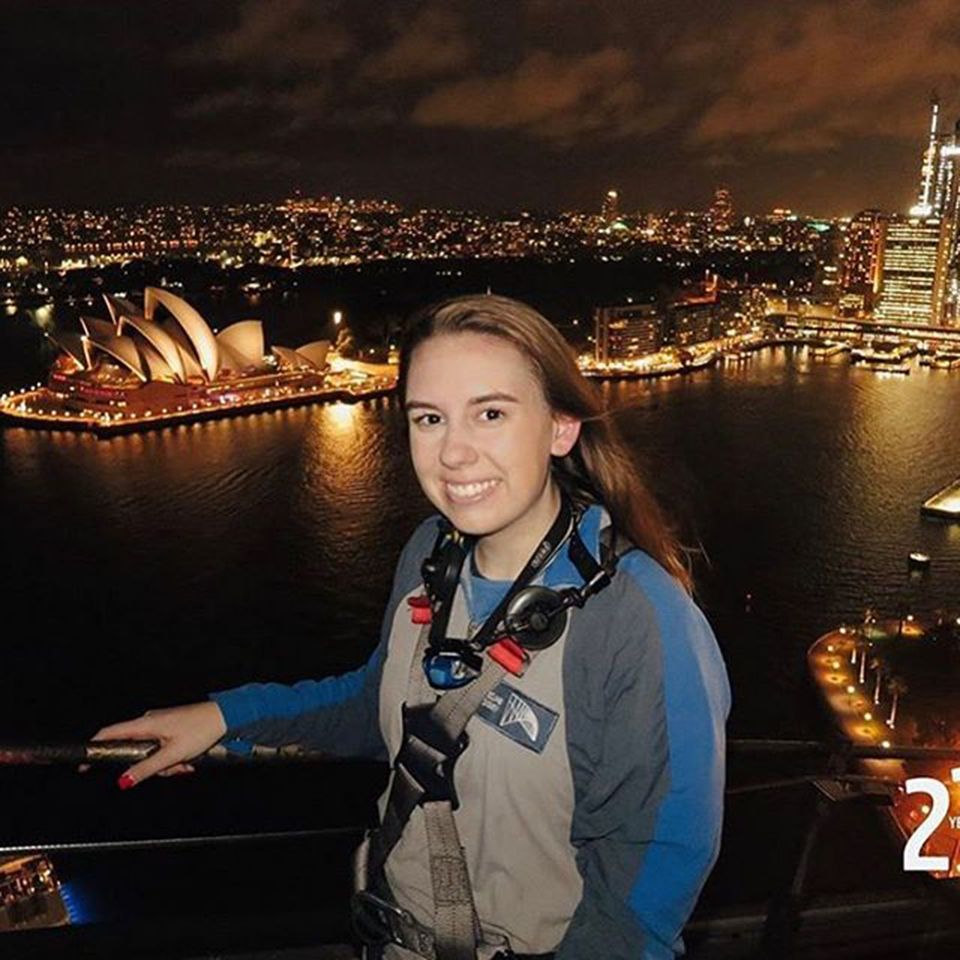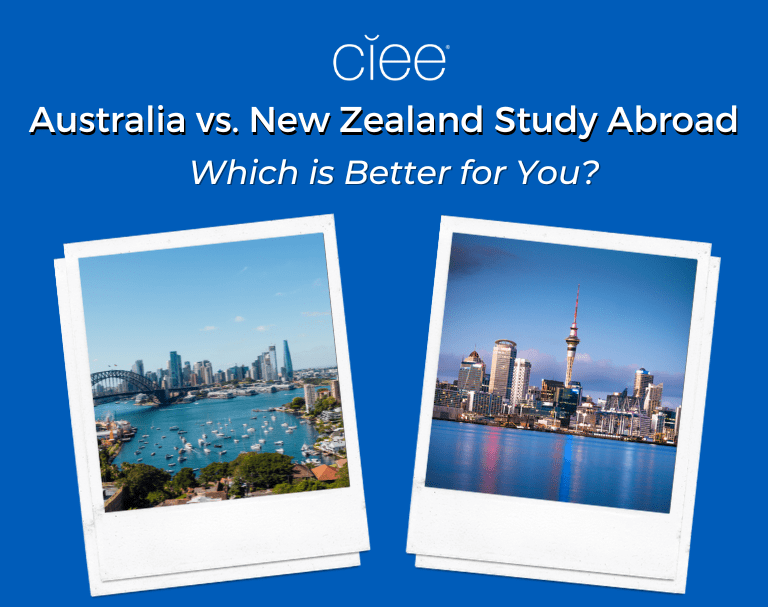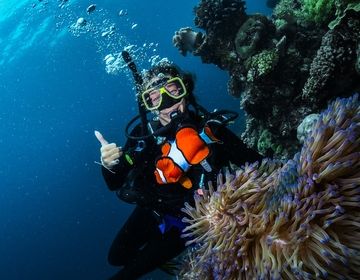Australia vs. New Zealand Study Abroad: Which is Better for You?
You’ve decided to study abroad in the Oceania region. Congrats! You’ve taken the first big step in your study abroad journey.
Next up? Choosing between Australia vs. New Zealand study abroad.
We get it – it’s a big decision. On the one hand, Australia is iconic! The Sydney Opera House, Great Barrier Reef, dense population of kangaroos, koala bears, and adorable quokka ... need we say more? On the other hand, New Zealand boasts out-of-this-world landscapes like majestic mountains and pristine beaches, is home to the rich Māori culture, and was the filming location of the famous Lord of The Rings movie franchise.
So, which is better: New Zealand vs. Australia study abroad? Both are remarkable, and the answer to that question is pretty subjective. To point you in the right direction, we’ve gathered distinguishing details you should know about each country to determine which place is the best match for YOU.
Quick Overview: Is Australia or New Zealand Better for Study Abroad?
We can’t stress this enough: Both Australia and New Zealand are incredible places to live and learn abroad. Each country is home to welcoming, inclusive people. Both countries have a renowned reputation for sweeping vistas and special wildlife, in their own rights. And each country features top-ranked education institutions known for their academic excellence.
Take a look at the comparison chart we’ve put together to illustrate hot topics like Australia vs. New Zealand climate, Australia vs. New Zealand travel, Australia vs. New Zealand culture, living in Australia vs. New Zealand, and more.
| Australia | New Zealand | |
| Population | 26 million | 5.2 million |
| Location | Southern hemisphere between the Pacific and Indian oceans | South Pacific Ocean near the center of the water hemisphere |
| Currency | Australian Dollar (AUD) | New Zealand Dollar (NZD) |
| Language(s) | Australian English | Māori, English, and New Zealand Sign Language |
| Types of Landscapes | Deserts, Farmland, Beaches Coral Reefs, Open Oceans, Wetlands, Rainforests | Glaciers, Fiords, Mountains, Plains, Hillsides, Forests, Volcanic Plateaus, Beaches |
| Quantity of Beaches | 11,761 | 700+ |
| Quantity of National Parks | 650 | 13 |
| Species of Animals | 200,000+ | 80,000+ |
| Average Student Monthly Cost | Up to $2,500 AUD | Up to $1,996 NZD |
Australia Study Abroad
Let’s dive deeper into Australia, the Land Down Under. From its natural wonders to its international vibes to its diverse biodiversity, this beautiful country beckons you. With CIEE, you can set your sights on either Australia’s most populous city, Sydney, or Australia’s cultural epicenter, Melbourne. In either city, you’ll quickly discover Australia is the perfect destination for students interested in studying subjects like engineering, ecology, health sciences, humanities, and more.
Keep reading to learn more about Australia study abroad and all you need to know!
Read More: The Ultimate Guide to Studying Abroad in Australia
Fast Facts About Australia
- Population: 26 million
- Climate: The Australian continent covers a large range of climate zones, including the tropics (in the north), arid (in the interior), and temperate (in the south)
- Location: Situated in the southern hemisphere between the Pacific Ocean and Indian Ocean
- Currency: Australian Dollar (AUD)
- Language: Australian English
- Airport: Sydney Kingsford Smith International Airport (SYD)
- Local Attraction: The Sydney Opera House, a multi-venue performing arts center and one of the seven Wonders of Oceania
- Bonus Fact: Australia is the only continent in the world without an active volcano

Australia Language & Culture 101
Many people wonder what the official language of Australia is, but to be clear, the country lacks a true “official language.” The main, unofficial language is Australian English, which is a bit of a mix between standard British English and standard American English, delivered with a strictly Aussie accent.
As far as the local culture goes, Aussies pride themselves on being friendly and welcoming. You’ll come to discover your neighbors will be kind and may even become your friends abroad. Even when meeting you for the first time, Aussies tend to greet everyone with a cheery “g’day,” and say anyone can become their “mate” – including you!
Read More: Eat, Drink, Explore: Melbourne
Cost of Living for a College Student in Australia
On average, living in Australia costs between $1,400 and $2,500 AUD per month, without tuition fees. This estimated range accounts for food, transportation, utilities, and other miscellaneous expenses. Remember, this is an estimate, and your monthly expenses depend on your lifestyle.
Additionally, keep in mind that housing, excursions, study tours, travel protection, and 24/7 on-site emergency support are all included in your CIEE tuition.
To help offset costs, CIEE also awards millions in scholarships and grants for students to study abroad each year based on demonstrated financial need, academic merit, and specific programs. To see if you qualify for CIEE funding, submit the Scholarships & Grants portion of your CIEE application. On average, it only takes students 15 minutes to complete!

Read More: How to Apply to a Study Abroad Scholarship at CIEE: 4 Steps
8 New Study Abroad Programs in Australia
Now that you have a better understanding of Australia study abroad, let’s explore some of CIEE’s new programs across Sydney and Melbourne.
Semester in Sydney
Experience the ultimate freedom to shape your academic journey with this exceptional Semester in Sydney program! You’ll be able to combine CIEE classes with courses offered by the prestigious University of Sydney all while immersing yourself in the unique blend of Australian charm and cosmopolitan flair that defines Sydney.
- Program Length: 18 weeks
- Credit: 12-17 semester hours/18-25.5 quarter hours
- Eligibility: 2.5 Overall GPA
Sydney Arts + Sciences (University of Sydney)
Take your studies to Sydney’s oldest university: University of Sydney! On this program, you’ll study the arts, humanities, and/or social sciences while experiencing Sydney’s unique blend of Australian charm and cosmopolitan flair.
- Program Length: 18 weeks
- Credit: 12-16 semester hours/18-24 quarter hours
- Eligibility: 2.5 Overall GPA
Sydney Arts + Sciences Trimester (UNSW)
Enjoy a shorter but equally enriching study abroad experience on our trimester program in Sydney. The iconic Sydney Opera House and Harbour Bridge will serve as your backdrop while you take diverse courses tailored to meet your academic goals and interests.
- Program Length: 14 weeks
- Credit: 12 semester hours/18 quarter hours
- Eligibility: 2.5 Overall GPA
Summer in Melbourne
Designed for students from all academic backgrounds, this four-week summer program invites you to embark on an immersive academic adventure with course options that seamlessly integrate classroom learning with enriching co-curricular excursions.
- Program Length: 4 weeks
- Credit: 3 per session semester hour/4.5 per session quarter hour
- Eligibility: 2.5 Overall GPA
Melbourne Summer Global Internship
Our Summer Global Internship program is the perfect opportunity to enrich your global outlook and gain real-world professional skills in one of the world’s most livable cities. Whether you’re placed in a computer science, engineering, marketing, or business internship, you’ll walk away with highly valuable hard and soft skills transferable to your future career.
- Program Length: 8 weeks
- Credit: 6 semester hours/9 quarter hours
- Eligibility: 2.5 Overall GPA
Semester in Melbourne
Spend a full semester combining CIEE classes with courses delivered by the prestigious Monash University, CIEE’s renowned partner institution, giving you access to top-notch courses across various subjects. All your courses will be complemented with activities and excursions organized by CIEE in and beyond the city to enhance your academic learning and provide intercultural understanding.
- Program Length: 18 weeks
- Credit: 14-17 semester hours/21-25.5 quarter hours
- Eligibility: 3.0 Overall GPA
Melbourne Arts + Sciences (University of Melbourne)
Take your studies to the University of Melbourne, Australia’s top-ranked institution. Whether you're pursuing a major in sciences, arts, business, or any other field, you’ll find the University of Melbourne’s diverse course offerings and dynamic campus life enriching. Students have access to more than 1,300 undergraduate subjects and are encouraged to explore Melbourne’s rich cultural landscape through a variety of excursions and hands-on learning experiences.
- Program Length: 23 weeks
- Credit: 16 semester hours/24 quarter hours
- Eligibility: 3.0 Overall GPA
Melbourne Arts + Sciences (Monash University)
Experience life studying at Monash University, one of Australia’s leading institutions, known for its innovative teaching and global outlook. Monash University offers students the chance to choose from thousands of courses across a wide range of disciplines, including business, engineering, sciences, and the arts. With a strong focus on practical learning and industry connections, Monash ensures that students gain real-world skills to succeed in their careers.
- Program Length: 19 weeks
- Credit: 12-16 semester hours/18-24 quarter hours
- Eligibility: 3.0 Overall GPA
EXPLORE AUSTRALIA STUDY ABROAD
New Zealand Study Abroad
Now that you’ve learned all about Australia, let’s take a closer look at New Zealand. A country known for its diverse landscapes, renowned educational institutions, and immersive cultural opportunities, New Zealand offers a one-of-a-kind study abroad experience. With CIEE, you’ll take your studies to Auckland, one of the largest cities in New Zealand with a reputation for being a multi-cultural hub of food, music, art, and culture. Here, you’ll be in for a true adventure in the heart of nature.
From hiking mountainous terrains to visiting iconic waterfalls to exploring the country’s rich Māori heritage, Auckland is sure to be an ideal backdrop for a journey of personal growth. Not to mention, experiencing its impressive network of robust and rigorous academic programs!
Let’s dig deeper into New Zealand study abroad.
Read More: Study Abroad New Zealand: The Ultimate Guide
Fast Facts About New Zealand
- Population: 5.2 million
- Climate: New Zealand largely has a temperate climate, with warm subtropical temperatures in the far north, cool temperate temperatures in the far south, and severe alpine conditions in the mountains
- Location: South Pacific Ocean near the center of the water hemisphere
- Currency: New Zealand Dollar (NZD)
- Language: New Zealand has three official languages – Māori, English, and New Zealand Sign Language
- Airport: Auckland Airport (AKL)
- Local Attraction: Milford Sound, a landmark fiord, is among the country’s most famous attractions, known for its staggering coastal scenery, dramatic peaks, and dark blue water
- Bonus Fact: There are more sheep in New Zealand than people; roughly about six sheep per every human (one of the highest ratios in the world)

New Zealand Language & Culture 101
In terms of languages, New Zealanders (also fondly nicknamed “Kiwis”), speak a range of different languages. The country has three official languages: Māori, English, and New Zealand Sign Language. However, Samoan, Mandarin, and Hindi are also spoken across the population.
Take a look at the breakdown of how many people speak each distinct language:
| Language | Total Population | Percentage of Population |
| English | 4,482,135 | 95.3% |
| Māori | 185,955 | 3.96% |
| Samoan | 101,937 | 2.17% |
| Mandarin | 95,253 | 2.03% |
| Hindi | 69,471 | 1.48% |
| New Zealand Sign Language | 22,986 | 0.5% |
In terms of accents while speaking English, many people wonder about the similarities and differences in the New Zealand vs. Australian accent. New Zealanders tend to make more prominent sounds while speaking (“u”), whereas Australians typically pronounce their vowels with emphasis on the sound (“ee”). Take the example of pronouncing “fish and chips” from our friends at Babbel:
- New Zealanders/Kiwis: “Fush and chups”
- Australians/Aussies: “Feesh and cheeps”
As far as the local culture goes, New Zealanders are considered down-to-earth, friendly people who embrace the Māori spirit of manaakitanga (hospitality). Looking after visitors is of great importance to locals, as is the overall well-being of the entire society. In addition to being kind and caring, New Zealanders are incredibly eco-conscious, nature-focused, and humble. All in all, a wonderful nation of people to connect with!
Read More: Eat, Drink, Explore: Auckland
Cost of Living for a College Student in New Zealand
Living in Auckland costs, on average, up to $1,996 NZD per month, although that figure will vary depending on your lifestyle. This estimate takes into account food, transportation, utilities, entertainment, and so on.
Remember, expenses like housing, excursions, study tours, travel protection, and 24/7 on-site emergency support are automatically included in your CIEE tuition. Additionally, you can apply for scholarships and grants to see if you qualify for CIEE funding.

Read More: Study Abroad Scholarships: Everything You Need to Know
4 New Study Abroad Programs in New Zealand
Now that we’ve convinced you how amazing New Zealand study abroad is, take a look at our new programs offered in Auckland.
Auckland Summer Global Internship
Our Summer Global Internship program is the perfect opportunity to gain valuable real-world work experience while immersing yourself in New Zealand’s innovative, creative, and balanced work culture. Whether you’re placed in a media, business, tourism, or technology internship, you’ll walk away with highly valuable hard and soft skills transferable to your future career.
- Program Length: 8 weeks
- Credit: 6 semester hours/9 quarter hours
- Eligibility: 2.5 Overall GPA
Summer in Auckland
Spend four weeks of your summer enrolling in one credit-bearing course, blending classroom instruction with enriching co-curricular excursions to Auckland's cultural sites and organizations. Outside the classroom, you’ll have every opportunity to immerse yourself in New Zealand's rich Māori culture, engage in exciting sports activities, and visit the region’s numerous parks, volcanic cones, and scenic beaches.
- Length: 4 weeks
- Credit: 3 per session semester hour/4.5 per session quarter hour
- Eligibility: 2.5 Overall GPA
Semester in Auckland
Designed for all academic majors, this program combines CIEE classes with those offered by the prestigious University of Auckland, CIEE's renowned partner institution, giving you access to top-notch programs across various subjects. As the country's largest and most prestigious university, the University of Auckland is globally recognized for its research and academic excellence. Students will benefit from the university's cutting-edge facilities and dynamic academic environment, where innovation and hands-on experience are integral to learning.
- Program Length: 19 weeks
- Credit: 12-18 semester hours/18-27 quarter hours
- Eligibility: 2.7 Overall GPA
Auckland Arts + Sciences (University of Auckland)
Pursue a world-class education at the University of Auckland, CIEE’s esteemed partner institution, and join a diverse community of students from around the globe, learn from renowned faculty, and engage in cutting-edge research. With a strong focus on practical learning and industry connections, the university prepares you for success in your career.
- Program Length: 19 weeks
- Credit: 16 semester hours/24 quarter hours
- Eligibility: 2.7 Overall GPA
EXPLORE NEW ZEALAND STUDY ABROAD
Australia vs. New Zealand Study Abroad
Now that you know the key differences between Australia vs. New Zealand study abroad, what’ll it be? Australia’s Outback and Great Barrier Reef? Or New Zealand’s lush forests, snow-capped mountains, and stunning coastlines? The choice is yours and you can’t go wrong either way.
Our advice to you: Find the program that best aligns with your academic goals, personal interests, schedule, and budget. Once you figure those details out, you’ll surely know which country is the right fit for YOU.
Related Posts
Sydney’s Best Independent Bookstores
🛋️ Sydney’s Independent Bookstores 📖 Intro Tucked between the beaches, laneways, and buzzing cafés of Sydney are some absolute gems for book lovers—independent bookstores that have captured the hearts of... keep reading
Settling in Abroad in Sydney, Australia
By: Hannah Keefe Hi, my name is Hannah Keefe and I studied at CIEE Sydney for my first block. I have loved this program and the ability to stay in... keep reading
Exploring Australia’s Incredible Biodiversity with CIEE
By: Nova Berger Australia is renowned for its remarkable and unique biodiversity, making it one of the most ecologically distinct places on Earth. The country’s isolation from other continents for... keep reading




